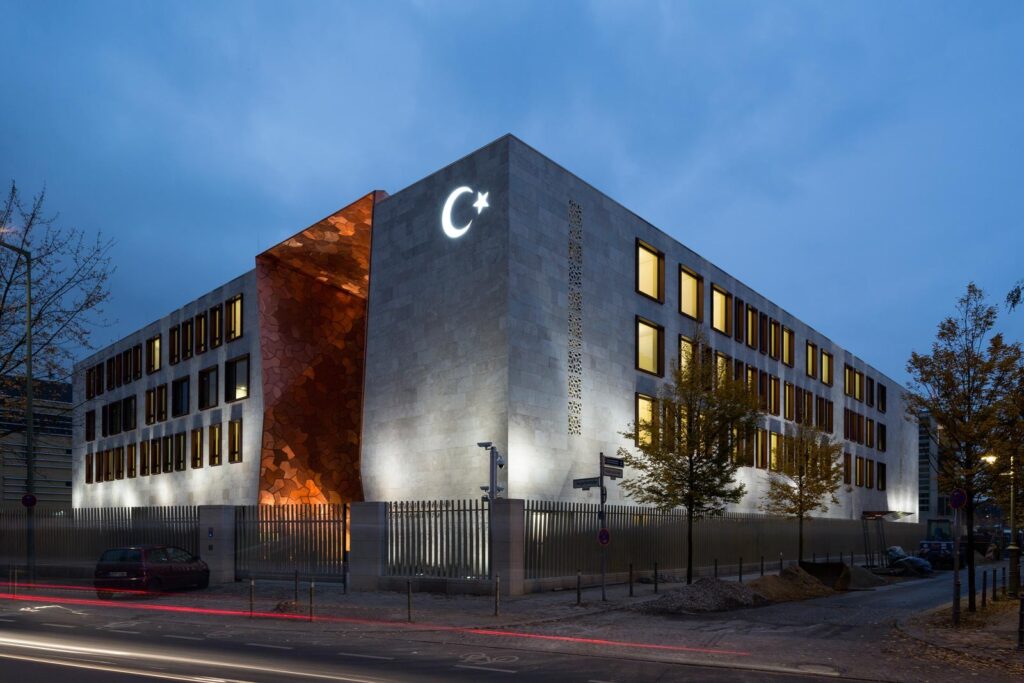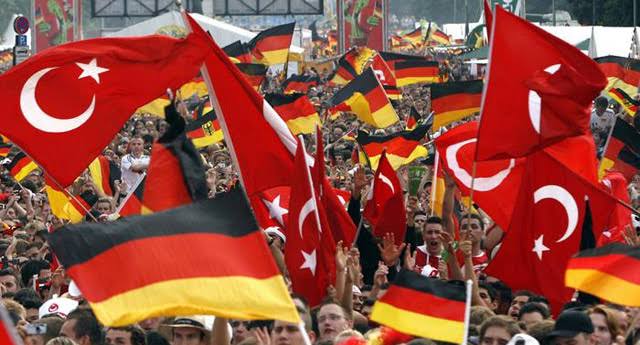Levent Kenez/Stockholm
A year after Germany enacted a landmark reform allowing dual citizenship, Turkish nationals living in the country have shown unexpectedly low interest in regaining their Turkish citizenship. Bureaucratic red tape, political distrust of Ankara, a perceived lack of reciprocity and a burdensome military service fee of 6,000 euros are among the key deterrents cited by lawmakers and analysts alike.
The issue was discussed at length during a May 7 meeting of the Turkish Parliament’s Subcommittee on Turks Abroad and Related Communities, where members expressed frustration over missed opportunities and lackluster public engagement. The meeting shed light on a growing disconnect between Turkey’s diaspora policies and the realities faced by populations of Turkish origin in Europe.
In 2024 Germany amended its Nationality Law, lifting previous restrictions that required immigrants to renounce their original nationality. For nearly 3 million people of Turkish origin in Germany, many of whom had previously relinquished their Turkish citizenship to acquire German nationality, this was seen as a historic chance to reclaim their roots without sacrificing their legal status in their host country.
In response Turkey’s foreign ministry launched a campaign through its consulates in Germany to encourage former citizens, mostly Blue Card holders, a status granted to those who had formally renounced Turkish citizenship but retained limited rights such as residency and inheritance, to apply for citizenship. The stated goal was not only to strengthen socioeconomic and political ties with the diaspora but also to boost the number of eligible voters in future Turkish elections.
However, the results fell far short of expectations. According to internal government reports, only about 18,000 of the 547,790 Blue Card holders in Germany have submitted applications to regain Turkish citizenship, a mere 3 percent. The ruling party, which had planned to secure votes from these people in elections, is unhappy with the low turnout.
In the general election of May 28, 2023, the total number of valid votes cast abroad was 1,921,000. Of these, 758,000 votes were cast in Germany, making up nearly 40 percent of the total. President Recep Tayyip Erdogan gained a significant advantage by securing 67.2 percent of the vote in Germany, winning 261,000 more votes than his opponent. In recent presidential elections, where competition has been fierce and every vote counts, the ruling party has been conducting intense propaganda to mobilize votes from abroad.

One of the most frequently cited reasons for the lack of applications is the issue of compulsory military service for men. While Turkey offers a paid exemption known as “dövizle askerlik” (military service through foreign currency payment), the fee has climbed steeply in recent years. As of 2025 eligible expatriates must pay €6,000, or approximately $6,650, to fulfill their service obligation without serving time in the military.
Though the Turkish government removed the former requirement of three years’ work abroad for eligibility for paid military service, the financial barrier remains daunting especially for young adults in Germany’s working-class Turkish communities. Some observers suggest the fee is high enough to make individuals reconsider reclaiming their Turkish nationality altogether.
“This is not merely a financial decision, it’s symbolic,” one senior lawmaker noted during the subcommittee meeting, reflecting a broader sentiment of disengagement. “People weigh the cost not only in euros but in trust.”
Despite efforts by Turkish consulates to improve the process including the introduction of online pre-application systems and outreach events, lawmakers argued that implementation remains inefficient and poorly coordinated.
Utku Çakırözer, a member of parliament from the main opposition, criticized the government’s approach, saying that while technical systems may have improved, the fundamental issues of public trust and transparency remain unaddressed.
“Despite having more than 3 million citizens abroad, we have failed to deliver on what we promised them,” he said. “What has been done is fragmented, partial and not strategic. This is not just administrative oversight. it’s a collective failure.”
Çakırözer also pointed to the parliament’s own lack of oversight, noting that the subcommittee had only convened twice in two years. “If we don’t engage systematically, we cannot expect effective results,” he warned.
Experts argue that beyond logistics and cost, deeper cultural and political issues contribute to the tepid response. Many second and third-generation Turkish-Germans no longer feel a strong sense of belonging to the Turkish state, and some actively distrust the Turkish government’s intentions.
Meanwhile, those who do consider applying often cite a lack of clear benefits, as Blue Card holders already enjoy limited rights such as residence, property ownership and social security access without the responsibilities of full citizenship, like military service.
Furthermore, Ankara’s inconsistent record on minority rights, democratic standards and freedom of speech has left parts of the diaspora skeptical about deeper re-engagement with the Turkish state. Kurds and Alevis in particular have serious concerns.
From the Turkish government’s perspective, encouraging dual citizenship was part of a broader plan to enhance soft power, strengthen political influence in Europe and deepen economic ties through remittances and investment. The low participation rate, therefore, represents not just a demographic disappointment but a missed geopolitical opportunity.
The subcommittee also heard that political polarization, insufficient inter-agency coordination and the government’s tendency to downplay or mishandle incidents involving Turks abroad had eroded trust.
One example cited during the meeting involved Turkish citizens visiting Turkey whose vehicles were attacked. Rather than publicize the incidents, victims reportedly chose to remain silent to protect Turkey’s international image, which highlights a complex interplay between patriotism and institutional skepticism.
Aside from the dual citizenship issue, the meeting also addressed an alarming spike in hate crimes targeting Turks and Muslims in Europe. Over 850 xenophobic or Islamophobic attacks have been reported in the past year, including mosque arsons and Quran desecrations. Lawmakers urged foreign governments to treat such acts as systemic threats, not isolated incidents.
The subcommittee also reviewed recent improvements in consular services, including mobile outreach units, expanded internet service platforms and a 24/7 call center. However, members stressed that technical fixes alone would not resolve the underlying disconnect between the Turkish state and its global diaspora.
Minutes from the parliamentary subcommittee session on May 7:












